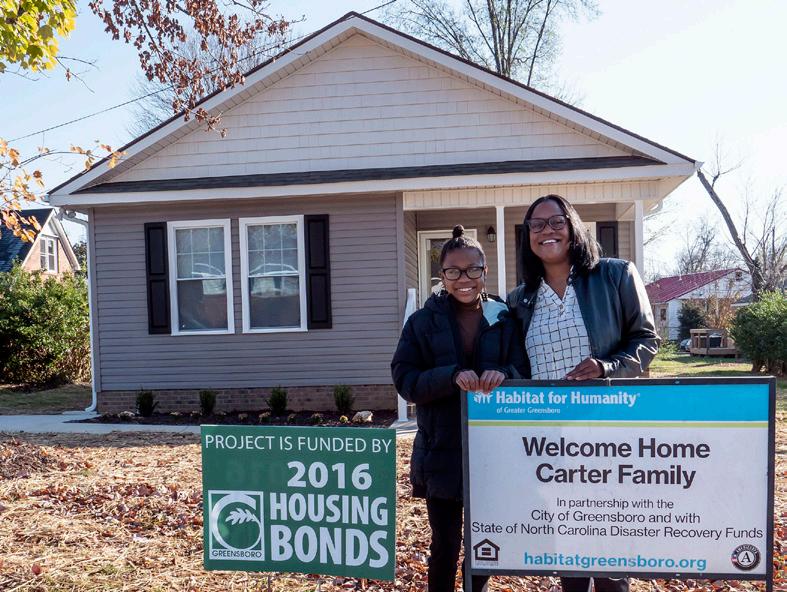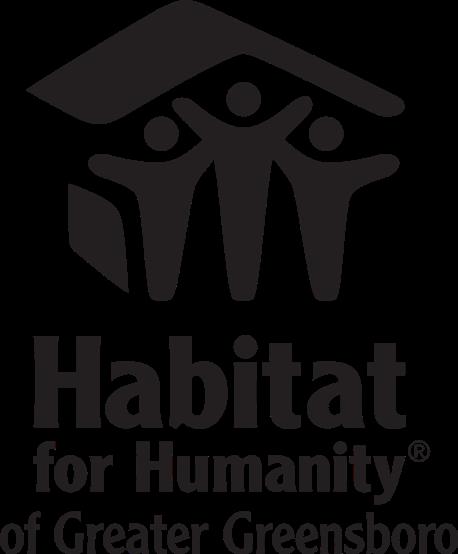
3 minute read
Winston-Salem Fairgrounds skatepark set for an update this spring
by Gale Melcher
Robert Dietrich started skateboarding around a year ago and has been practicing at the skatepark at Winston-Salem Fairgrounds for several months.
Advertisement
Scattered with a variety of ramps ranging in difficulty, the construction and installation of the skatepark that includes 15,200 square feet of ramps, quarter pipes, grinding rails, bank ramps and more received city council approval in August 2015.
Headed by William Royston, the city’s Parks and Recreation Department conducts annual inspections of the skatepark equipment, and in 2022 the pump track began to deteriorate as it took on water — Dietrich and other high schoolers told TCB in an interview that the pump track had developed some holes. Ordinarily, normal dips and banks of a pump track help bikers, skateboarders and roller skaters improve their balance.
During the Finance Committee meeting on Feb. 14 Royston told the council that the “hazardous piece of equipment” had been removed,” and that they were working with American Ramp Company and the skaters that frequent the facility “to get the equipment in there that they truly need.”
Stains left behind on the park’s concrete reveal where the 325-foot-long pump track used to run, snaking around the other pieces of equipment in a pattern of curves and bends.
Purchase of new equipment through a contract with the American Ramp company in the amount of $123,883.57 was recommended for Council approval on Feb. 14 by the Finance Committee and the item was approved by the city council via consent vote on Feb. 20
During the committee meeting Mayor Pro Tem Denise D. Adams men- tioned that the skatepark is frequently used, adding that residents of all ages enjoy the park’s facilities.
“Old people, young people, kids, families up there skateboarding — it’s a very good thing,” Adams said.
Another skateboarder, Gabriel, said he was there on the day the deteriorating pump track was taken away.
“They’ve been talking about it for months, though,” added Gabriel, who has been practicing at the skatepark for three years.
In an interview with TCB, Royston said that the skatepark will have new equipment in “12-16 weeks…late spring,” depending on the time it takes for the company to ship it and set it up.
Royston said that the renovations will include a large ramp, and that some of the current equipment will be repositioned around the skatepark. However, a new pump track will not be purchased for the park. Royston said that because a lot of the skaters like using rails for grinding, the updated park will include features that are well-suited for street skating so that the skaters can “feel like [they’re] skating in a downtown street center.”
“They’re trying to clear the gap,” Gabriel said, pointing toward the metal ramps that Dietrich and the other skateboarders were attempting to jump over.
“It’s really hard to do, though,” he noted before cheering Dietrich on as he attempted the trick, “You’ve got it bro, you got it!”
Habitat Greensboro’s Home Ownership Program now taking applications
Open enrollment for Habitat Greensboro’s Homeownership program opened on Feb. 15. Applications are available online at habitatgreensboro.org or at the Gate City ReStore, with applications considered on a rolling basis.

This is not a giveaway. The Homeownership Program helps traditionally marginalized families buy affordable houses in the city. Applicants must meet minimum household income requirements — between $25-$35,000 a year, depending on size — and provide documents such as a current lease, Social Security cards for all household members and statements of income for all household members along with the application. Homes are custom built, one-story single-family homes and one and two-story townhomes with 2-5 bedrooms and 2-3 bathrooms.
Applicants are selected on three criteria: a need for adequate housing, a willingness to partner with Habitat Greensboro and the ability to pay an affordable mortgage. The program is open to all households who meet these guidelines — Habitat does not discriminate for any reasons related to race, sex, national origin, religion, familial status, handicap, or color.

“Last year, out of more than 400 applicants, only 10 people met the guidelines,” said Christine Byrd, Director of Development and Communications of Habitat for Humanity of Greater Greensboro. “Many applicants either didn’t answer all the questions in the application or include all the attachments.”
She said, “we want to walk alongside them on their journey.”
The process can be daunting — after being accepted, applicants must take required homeownership courses on budgeting and financial literacy, household maintenance and simple repairs. The families must also put in 250 hours of “sweat equity” that could include pitching in on the construction of the house or helping out with other Habitat Greensboro projects. All classes count towards the required 250 hours, and every adult in the household can contribute.
But in the end, they are able to purchase a new or refurbished home with a mortgage not to exceed 30 percent of household income.
It’s an important program, Byrd said, because “very few builders build starter homes anymore, and starter homes in Greensboro do not come at starter home prices; $200,000 is not a starter home.”
And she reminded that there has been historic discrimination in the real estate and finance industries against people of color, non-English speakers and other marginalized communities.
More details, instructions, FAQs and the application itself can be found at Habitat Greensboro’s website, habitatgreensboro.org.
“I know there are a lot of people in Greensboro who have interest in this, who probably don’t think they qualify,” Byrd said. “But chances are, we can help.”








